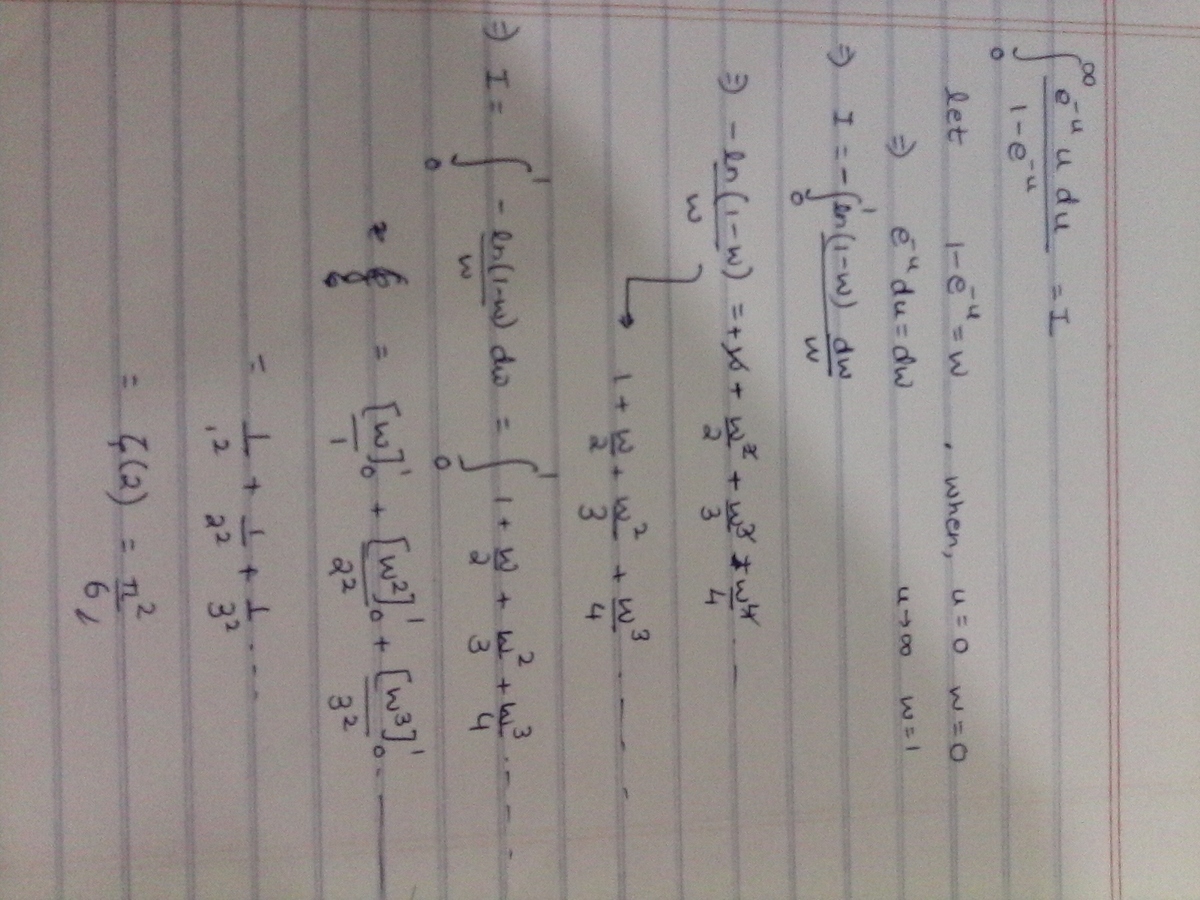I Was Vey Amaze At The Solution 2
∫ 0 ∞ e u − 1 u d u
Find the value of the closed form of the above integral to 3 decimal places.
Clarification: e ≈ 2 . 7 1 8 2 8 denotes the Euler's number .
For more problems like this, try answering this set .
The answer is 1.6449340668482262.
This section requires Javascript.
You are seeing this because something didn't load right. We suggest you, (a) try
refreshing the page, (b) enabling javascript if it is disabled on your browser and,
finally, (c)
loading the
non-javascript version of this page
. We're sorry about the hassle.
4 solutions
∫ 0 ∞ e u − 1 u d u = ∫ 0 ∞ 1 − e − u u e − u d u = ∫ 0 ∞ u ∑ r = 1 ∞ e − r u d u
Now evaluate ∫ 0 ∞ u e − r u d u = r 2 1 by using Integration By-Parts.
So, the given integral becomes ∑ r = 1 ∞ ∫ 0 ∞ u e − r u d u = ∑ r = 1 ∞ r 2 1 = 6 π 2
By the fact that:
ζ ( z ) × Γ ( z ) = ∫ 0 ∞ e u − 1 u z − 1 du ⟹ ζ ( 2 ) × Γ ( 2 ) ⟹ 6 π 2 × ( 2 − 1 ) ! ⟹ 6 π 2 ≈ 1 . 6 4 4 9 3 4 0 6 6 8 4 8 2 2 6 2 = ∫ 0 ∞ e u − 1 u 2 − 1 du = ∫ 0 ∞ e u − 1 u du = ∫ 0 ∞ e u − 1 u du
Use Brilliant.org reference since it is available.
Log in to reply
Ok ok sir, for the second time. XD Thanks for editing it out. :) I will use Brilliant.org reference next time. :)

Use the substitution x = 1 − e − u to rewrite the integral: ∫ 0 ∞ e u − 1 u d u = ∫ 0 ∞ 1 − e − u u ( e − u d u ) = ∫ 0 1 x − ln ( 1 − x ) d x
Then using the usual Maclaurin series, for ∣ x ∣ < 1 , x − ln ( 1 − x ) = x 1 ⋅ n = 1 ∑ ∞ n 1 x n = n = 1 ∑ ∞ n 1 x n − 1 and integrating, ∫ 0 1 x − ln ( 1 − x ) d x = n = 1 ∑ ∞ ∫ 0 1 n 1 x n − 1 = n = 1 ∑ ∞ n 2 1 = 6 π 2 ≈ 1 . 6 4 5